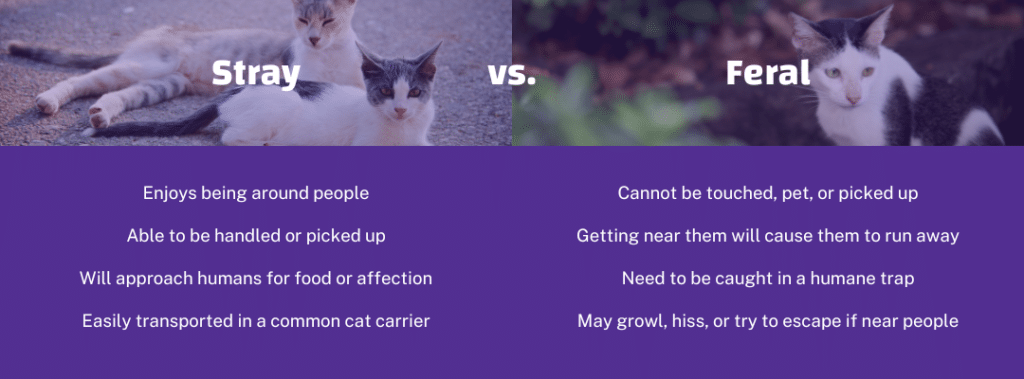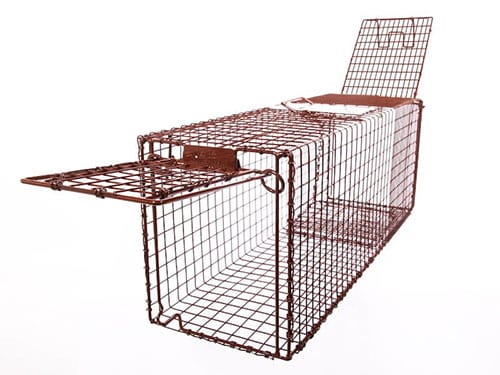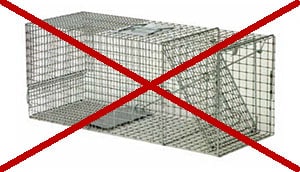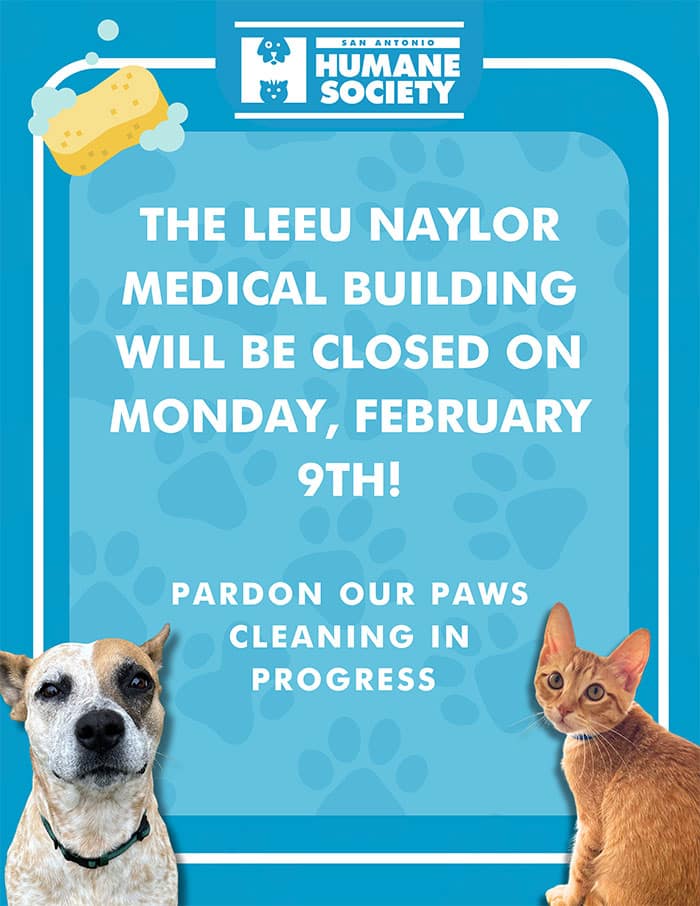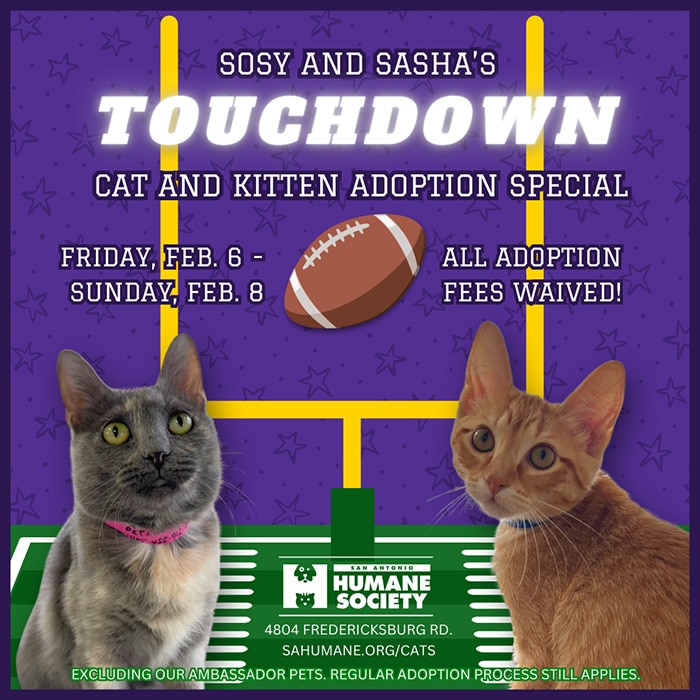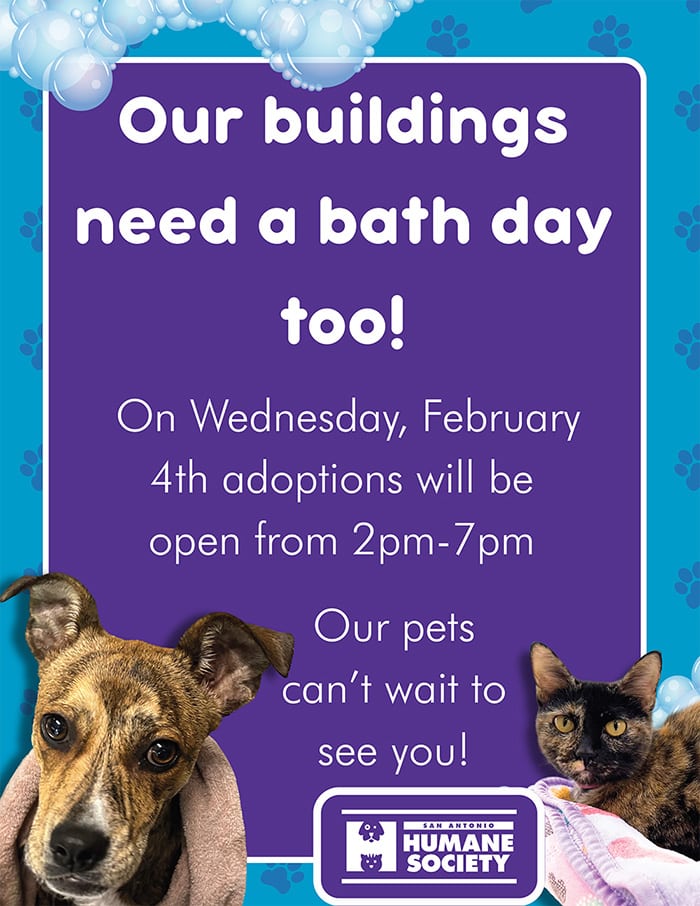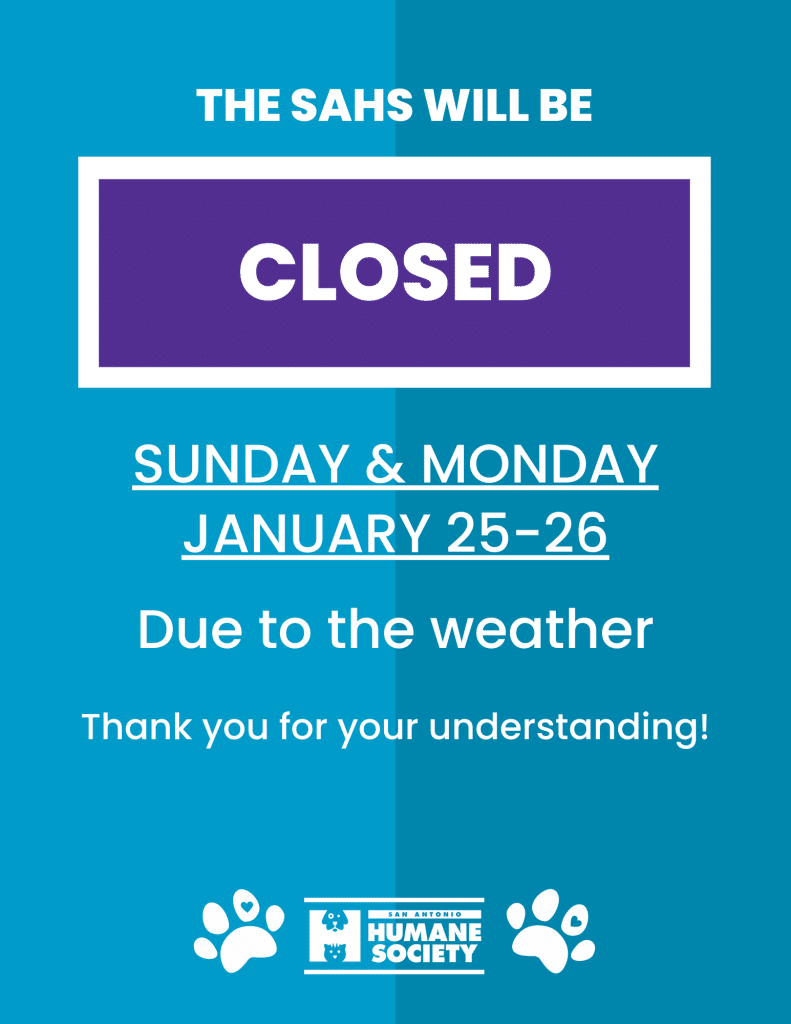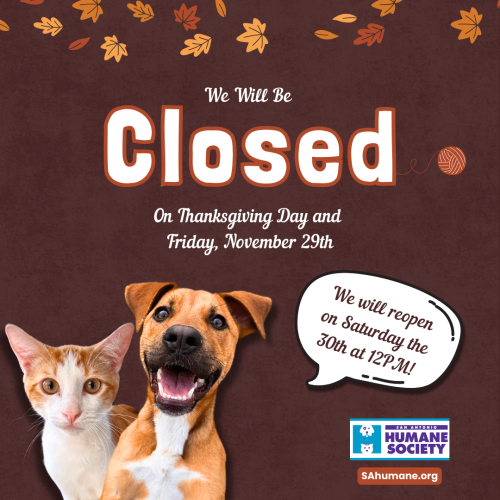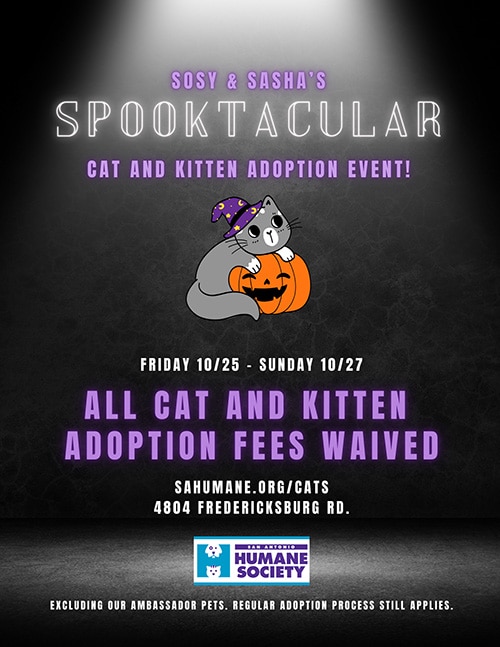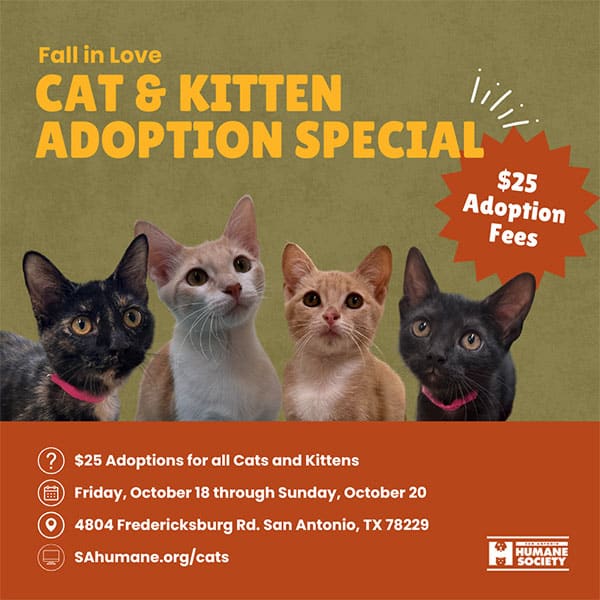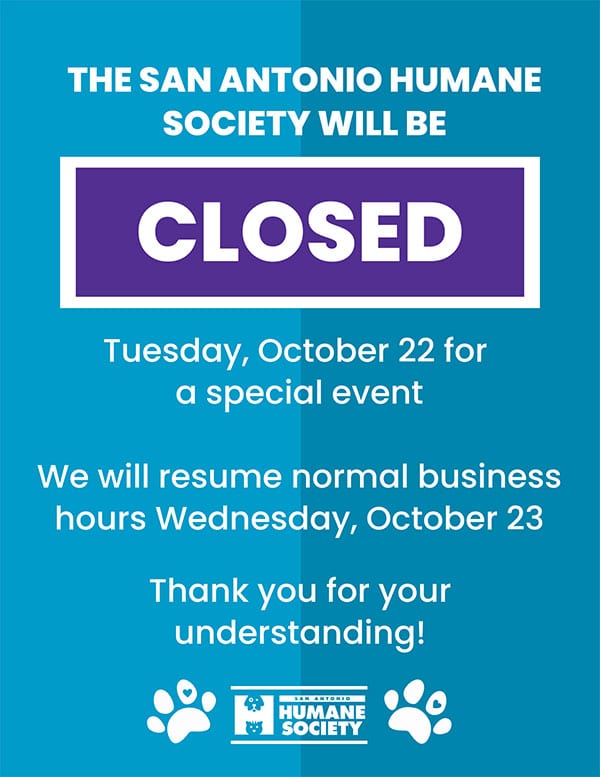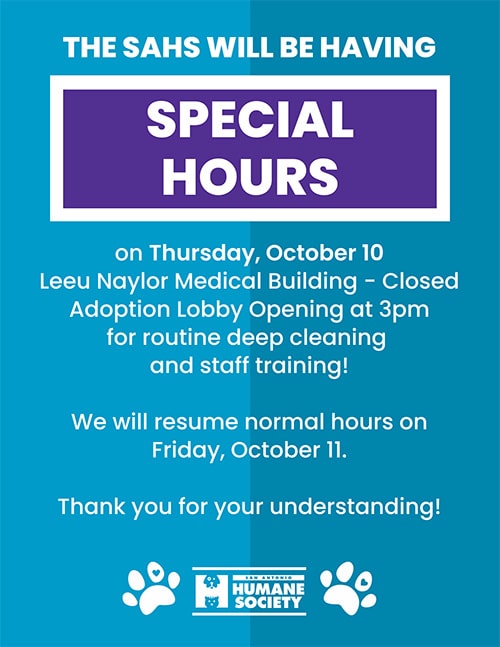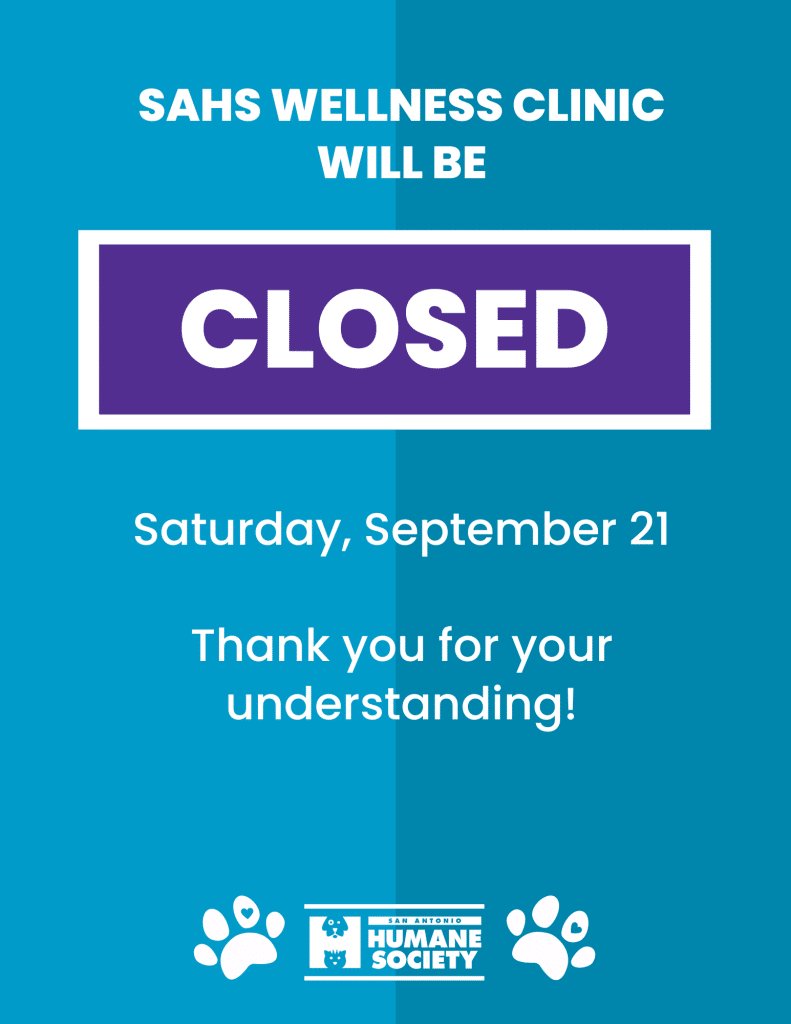Feral Cats
Important Information
- NO feral cats surgery dates:
- Limit is 10 feral cats per day (Monday-Friday) until further notice unless otherwise noted.
- Effective immediately all feral traps doors must be secured with either a carabiner or pipe cleaner. Zip ties will not be accepted.
- For cost of feral spay/neuter surgeries click here.
- The SAHS will reserve the right to charge full price to any feral cat coming in with a collar.
- For all of our Spay/Neuter information and a FAQ section - click here
Scheduling for ZIP CODE Feral Cat S/N Surgery
FREE spay/neuter services for feral cat(s) if you reside in the qualifying zip codes. See eligible zip codes on the Spay/Neuter main page.
Understanding the difference?
Stray and feral cats are both often seen roaming neighborhoods, but they have important differences that affect how they should be cared for. Both types of cats typically do not have an identifiable owner or permanent home, but their behavior and socialization levels vary.
The San Antonio Humane Society strongly supports the spaying and neutering of both stray and feral cats to help reduce overpopulation and improve their quality of life. However, the care they require—and the resources or grants available—may differ.
Not sure if the cat you’ve spotted is stray or feral? Use our helpful guide to identify the key traits of each and learn the best way to help.
First Come First Served
Feral cats IN TRAPS can be brought in on a first-come, first-served basis. There is a 10 feral cat limit per day, and no more than 3 feral cats per person, Monday – Friday at our Leeu Naylor Medical Building (4804 Fredericksburg Rd. located right next to our main shelter building). All cats presented as feral in a trap will receive an ear tip procedure. Community cats or strays that are tame and enjoy human companionship must have a scheduled appointment. Any cat not in a humane trap MUST be able to be handled by surgery staff to be accepted for surgery.
Although it is easy to see that there could be some confusion when trapping the cats in the neighborhood, with a little diligence it is easy to see the difference between a stray and a feral.
Trap-Neuter-Return
Feral cats are un-socialized cats. They were either born outside and have never known human companionship, or they were pets that got lost or abandoned, and after an extended time without human contact, have learned to fear humans. Feral cats form colonies around a food source such as a dumpster. Reproducing to the limits of the food supply, they lead meager lives often shortened by malnutrition, disease, and trauma. Most kittens born never make it through their first year. Their mating behaviors of spraying, fighting, and howling often cause them to become a public nuisance. Constant reproduction adds to the problem. Getting the cats spayed or neutered virtually eliminates these problems. Once neutered, males will no longer spray to mark their territory, and fighting over females stops, eliminating the problems of smell and noise. The colony size gradually diminishes with no kittens being born. Cats in a managed colony can live healthy, happy lives without causing problems for neighbors.
Started as a grassroots effort in the U.S., Trap-Neuter-Return (TNR) is now becoming accepted nationwide. TNR is the only proven humane method that solves the overpopulation problem while allowing the cats to live healthy lives. The San Antonio Humane Society rents humane traps for those looking to find a way to transport feral cats for the TNR program that is safe for humans and cats alike. The rental fee is $17.00 for ten days, with a $113 deposit refundable upon return of the trap. You can call 210-226-7461 or email [email protected] for more information on renting a humane trap.
The San Antonio Feral Cat Coalition also offers free TNR training classes to ensure your safety and the safety of the feral cats throughout the TNR process. For more information, view the San Antonio Feral Cat Coalition class schedule here.
Acceptable Trap (we use/rent out this kind of trap at the SAHS):
Unacceptable Trap:

